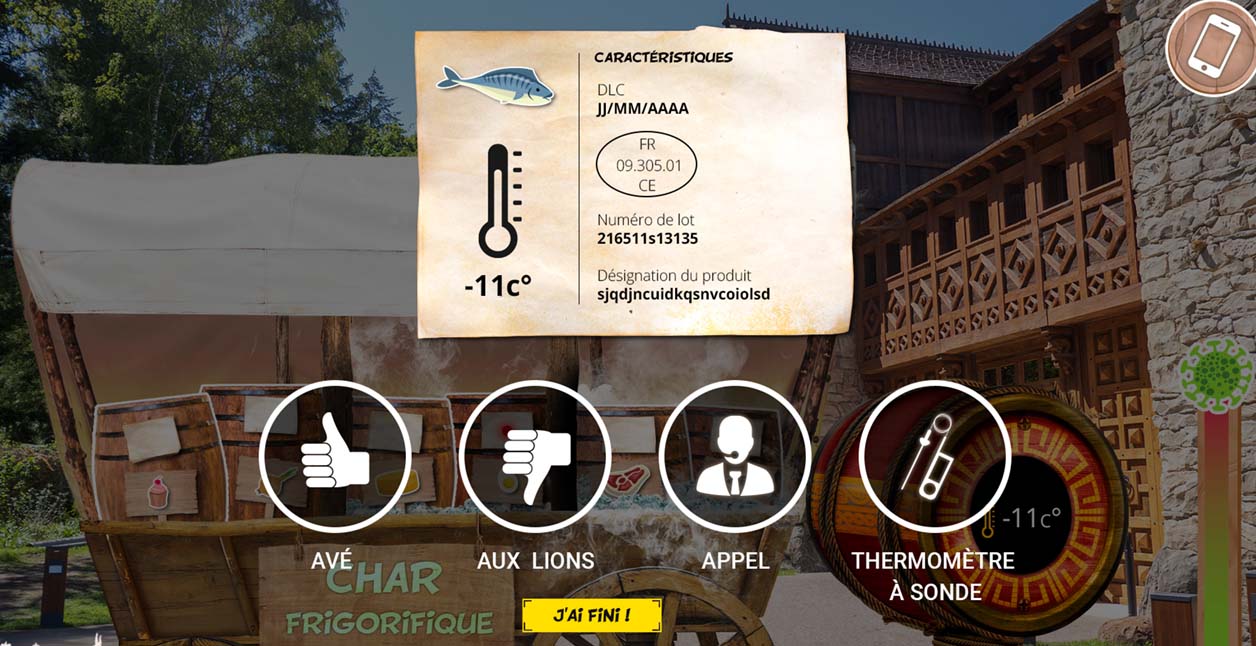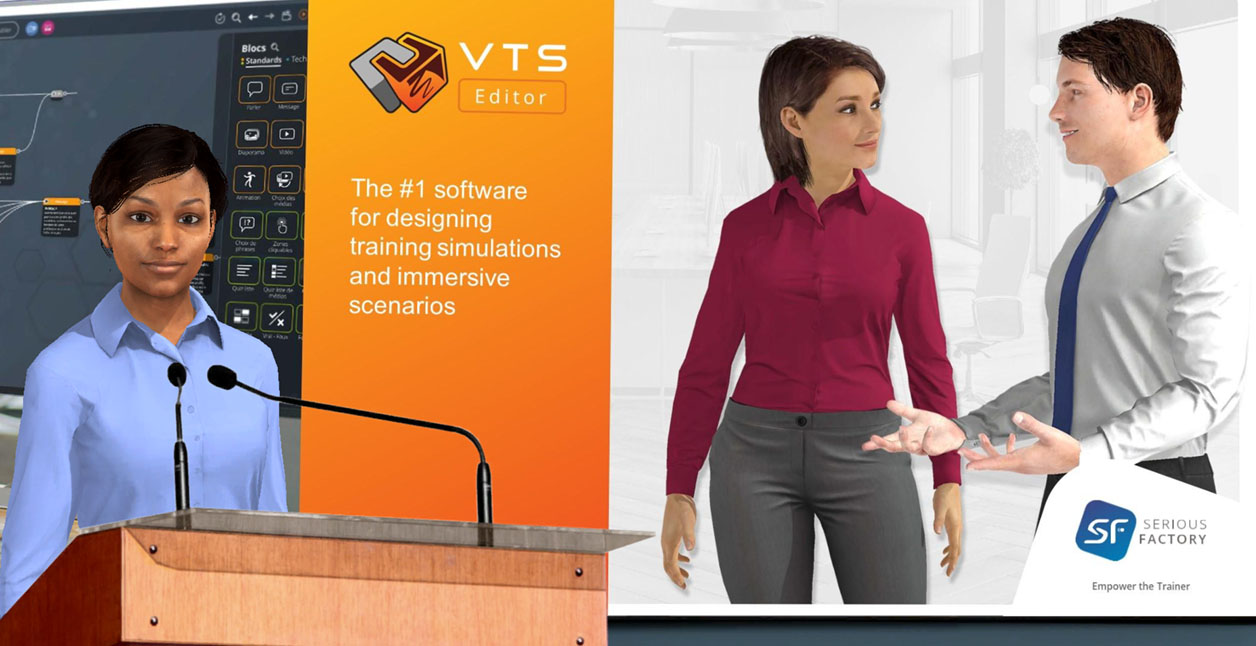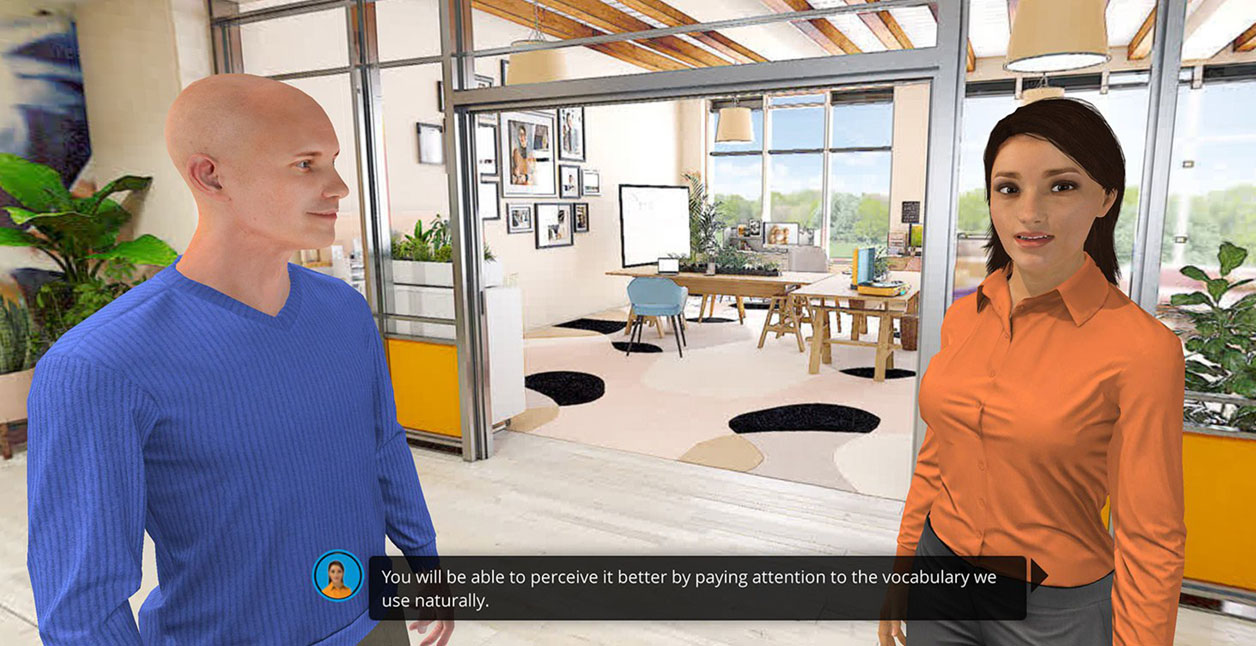
Business GamesTrain your teams to handle complex situations
SUMMARY:
What is a Business Game?
The term "business game" refers to an interactive simulation that immerses participants in the world of business management. Designed as a pedagogical tool, it relies on realistic scenarios to provide a fun and effective learning environment for professionals and students.
Throughout the management simulation scenario, participants face practical cases where they must make strategic decisions that will impact the achievement of objectives. These scenarios might simulate bringing a new product or service to market, creating a new production line, or opening an office in a new country... These are just some of the situations that could potentially arise in the professional world.
Accessible in academic settings as well as in businesses, the business game is a simulation game that proves to be an interactive learning tool that promotes collaboration and stimulates professional development.

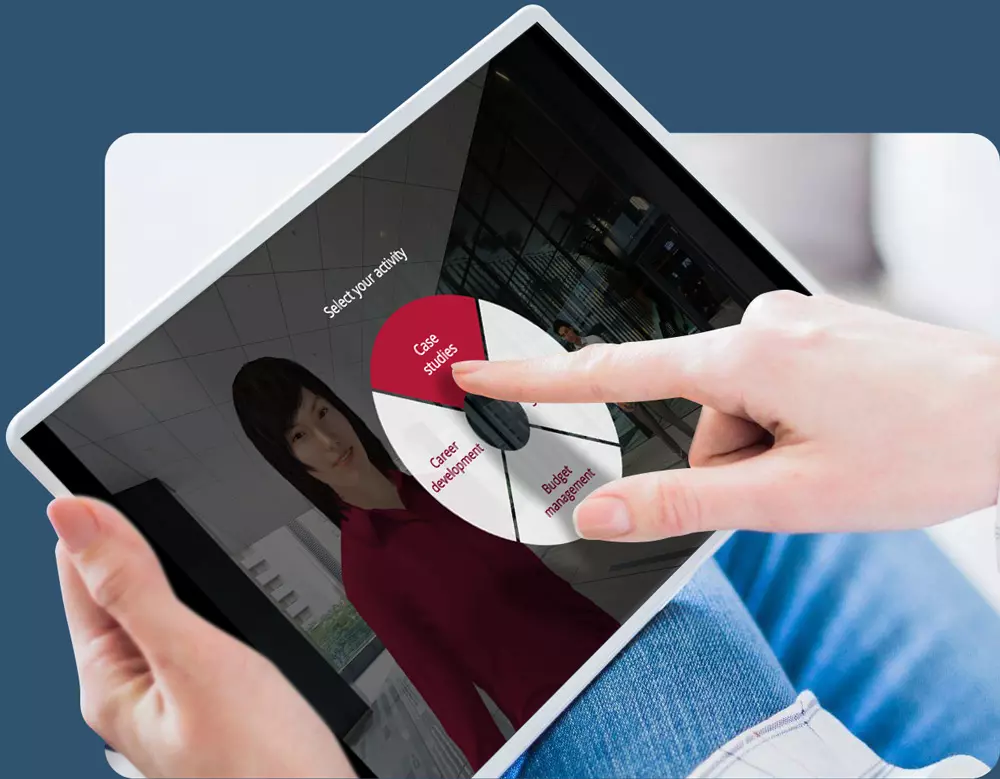
What are the benefits of Business Games?
The "business game" is considered a very powerful pedagogical tool for developing both technical skills (hard skills) and interpersonal skills (soft skills) in individuals, whether professionals or students.
This active pedagogical methodology is based on an immersive approach that engages participants in developing and practicing their skills and behaviors through an interactive, professional serious game.
This approach promotes lasting memorization of knowledge and skill development through practice and experience. By directly involving themselves in the simulation and management games, participants retain the acquired knowledge more effectively compared to traditional teaching methods in preparatory classes, business schools, or even in‑house training in companies.
Facing failure and uncertainty is an essential aspect of skill development. While failure can be hard to accept, it is also a powerful learning driver. Business Games offer a safe space where participants are free to make mistakes, allowing them to draw concrete lessons that are directly transferable to real‑life professional situations in diverse sectors such as finance, management, entrepreneurship, supply chain, or management control for skills acquisition, career transition, or career advancement.
How to create Business Games?
Now that you have an overview of the foundations and benefits of a Business Game, you might want to create your own. The design of a Business Game is a relatively complex process as it involves many skills and specializations:
- Expertise in the processes to simulate
- Knowledge of Game Design for game balance and difficulty management
- Game design knowledge for graphics and programming.
In terms of design, our 9‑step method, developed through hundreds of projects, can greatly help you structure the creation of your Business Game.
You will find all the details of this method by downloading our white paper dedicated to this method.
The 9 steps of the Juicy Learning method
1. Define the pedagogical objective, target, and concept
First and foremost, it is important to clearly define why and for whom you are creating your Business Game: recent graduates, operational engineers, faculty, international students, executives in luxury commerce... and an infinite number of possible profiles. It is therefore important to ask yourself the right questions before starting.So start by answering these 3 questions:
- What is the pedagogical objective of the game‑based management simulator? (example: implementing a marketing strategy)
- Who is your target? (example: students in a business school)
- What is the main concept of your Business Game? (example: the Ebike company has developed a new urban electric bike, you will need to define the marketing strategy and manage your budget)
2. Identify the key skills
Just like a training module where you would identify the key messages, a business game aims to put into practice already acquired skills. This step consists of defining which skills will be implemented to achieve the game objectives and what "parameters" participants can act on to vary the scenario.3. Construct the architecture
At this stage, you have defined the outlines of your project. It's now time to design its contours.The important thing here is to set the different key stages of your Business Game. This is the step where you will think about your story development.
What pace do you want to give your story? Who will be the characters involved and what are their personas? In which environments does the story take place?
4. Distribute the key skills
In this pedagogical design step, the goal is to efficiently distribute the skills that have been identified in step 2.This is the stage where you will define the different actions that must be performed by the participants and which skills these actions will call upon.
5. Write the ideal scenario
The ideal path represents the most effective journey, where the learner makes all the right choices. For this stage, it is essential to build this path without yet worrying about writing the incorrect choices; the goal is to put in writing the complete ideal narrative of the learning experience. It is also advisable not to dwell too much on the creation of interactions or staging at this stage. The priority remains to record the complete sequence of events in the scenario.6. Create alternatives
Now that the ideal narrative is established, it is time to tackle the writing of the various alternative branches of the scenario. This phase involves thinking about the different ways to test the learner, the consequences of their mistakes, and their influence on the continuation of the scenario. The goal here is to be able to map the pedagogical progression of the learner throughout the learning experience.7. Evaluate with scores and debriefing
After having developed a playable scenario from start to finish, it is essential to move on to the step aiming to provide the learner with constructive feedback. The goal is to help them understand how they can improve and learn from their mistakes. You can imagine different levels of difficulty where explanations of errors are more or less present.8. Give your experience the Juiciness it deserves
Your Business Game is now complete from a pedagogical and narrative point of view. The next step is to make it captivating and engaging by making it "Juicy". For that, two aspects must be considered with care: sound design and graphics.8. Give your experience the Juiciness it deserves
Your Business Game is now complete from a pedagogical and narrative point of view. The next step is to make it captivating and engaging by making it "Juicy". For that, two aspects must be considered with care: sound design and graphics.9. Proofread and deploy
Take the necessary time for people who did not participate in the design of your project to test your game. If you have the opportunity to conduct user testing, take it; objective feedback will help you identify errors and problems you would not pay attention to, such as typos or residual bugs. It is also important to adjust the pace and difficulty of the game based on this feedback.Once the content has been meticulously reviewed, validated, and all quality checks have been performed, you are ready to publish your experience. This is the moment to disseminate your project and share it with your target audience.
What tools to create Business Games?
A business game can take many forms:
- card game, board game, or other physical medium (example Legos) that will be animated by a “game master”.
- use of a digital application which has the advantage of guiding users in the unfolding of the scenario and in the calculations of the impacts of actions depending on the nature of the professional or educational project.
- Are you looking for an all‑in‑one tool to create digital Business Games efficiently and without coding? Look no further!
Need help creating your Business Game?
Since 2007, Serious Factory has been transforming your training into more engaging and memorable experiences.
We support you in succeeding your training strategy by providing solutions that enable the acquisition, development, and assessment of skills.
Our commitments
We support you in the creation, deployment and implementation of competency management while respecting costs, production deadlines and your brand identity.
Evolving projects
Our tailor‑made projects are designed with VTS Editor so that you can develop them independently.
Our expertise
Pedagogical engineering, storytelling, game design, digital training strategy audit and consultancy, research & development, UI/UX design... A watchword: Innovation.
Agile methodology
Your satisfaction is our priority. We work hand in hand until the final objective is achieved.
Frequently Asked Questions
What is a Business Game?
A Business Game, or corporate game, is an interactive simulation that reproduces real‑life business scenarios. It allows participants to experiment with strategies, make decisions, and see the repercussions in a secure virtual environment, thus promoting active learning and the acquisition of managerial skills. Business games cater to a wide variety of audiences aiming for various career paths: management schools, business schools, corporate strategy training, marketing techniques, leadership, engineering schools, optimization of professional experience in business management, and more.
What is VTS Editor and how can it be used to create Business Games?
VTS Editor is a powerful content creation tool for digital learning, enabling educational designers and trainers to easily create interactive simulations and serious games. With VTS Editor, it's possible to design custom Business Games involving complex scenarios and aiming to integrate interactive learning methods into training programs.
Do I need programming skills to use VTS Editor?
No, one of the strengths of VTS Editor is its ease of use. It offers an intuitive drag‑and‑drop interface, making the creation of Business Games accessible even to beginners. No programming skills are required to create engaging and educational Business Games.
Can I customize my Business Game to specifically meet the needs of my company?
Absolutely. VTS Editor is designed to offer maximum flexibility, allowing you to create simulations that reflect the unique challenges and situations of your company. You can customize scenarios, characters, and even the virtual environment to match the reality of your company, your learning objectives, and your target audience: researchers, engineers, specialized executives, resources management experts, students in professional contracts, candidates for admissions competitions, and more.
How does VTS Editor facilitate the creation of realistic scenarios in a Business Game?
VTS Editor has a rich library of settings, objects, and characters, allowing for the creation of realistic and immersive environments. Additionally, the tool offers the possibility to add dialogues, multiple choices, and consequences for each decision made, ensuring a dynamic learning experience as close to reality as possible.
Is it possible to integrate assessment elements into a Business Game created with VTS Editor?
Yes, VTS Editor makes it easy to integrate assessment elements, such as quizzes and performance evaluations, for a complete journey and real‑time feedback. These elements are essential for measuring the effectiveness of management game learning and for providing players with constructive feedback on their decisions and skills.
How long does it take to create a Business Game with VTS Editor?
The time required to create a Business Game depends on the complexity of the project and your familiarity with the tool. However, thanks to the intuitiveness and the multitude of resources provided by VTS Editor, even the most ambitious projects can be realized efficiently and within a reasonable timeframe.
Are Business Games created with VTS Editor compatible with LMS (Learning Management Systems)?
Yes, games and simulations created with VTS Editor can be integrated into most Learning Management Systems (LMS), thanks to their compatibility with SCORM standards. This allows for seamless integration and easy tracking of learner progress and performance.
How can I share my Business Game with my audience?
Once you have created your Business Game with VTS Editor, you have multiple options for sharing it. You can export it for online or offline use, integrate it into an LMS, or even share it via direct links, making access easy and convenient for your learners.
Does VTS Editor offer support or training for beginners?
Yes, VTS Editor offers a wide range of support and training resources, including video tutorials, user guides, and dedicated customer support. These resources are designed to help users of all levels get the most out of the tool and create effective and engaging Business Games.
Discover other educational modalities
Role‑playing scenarios
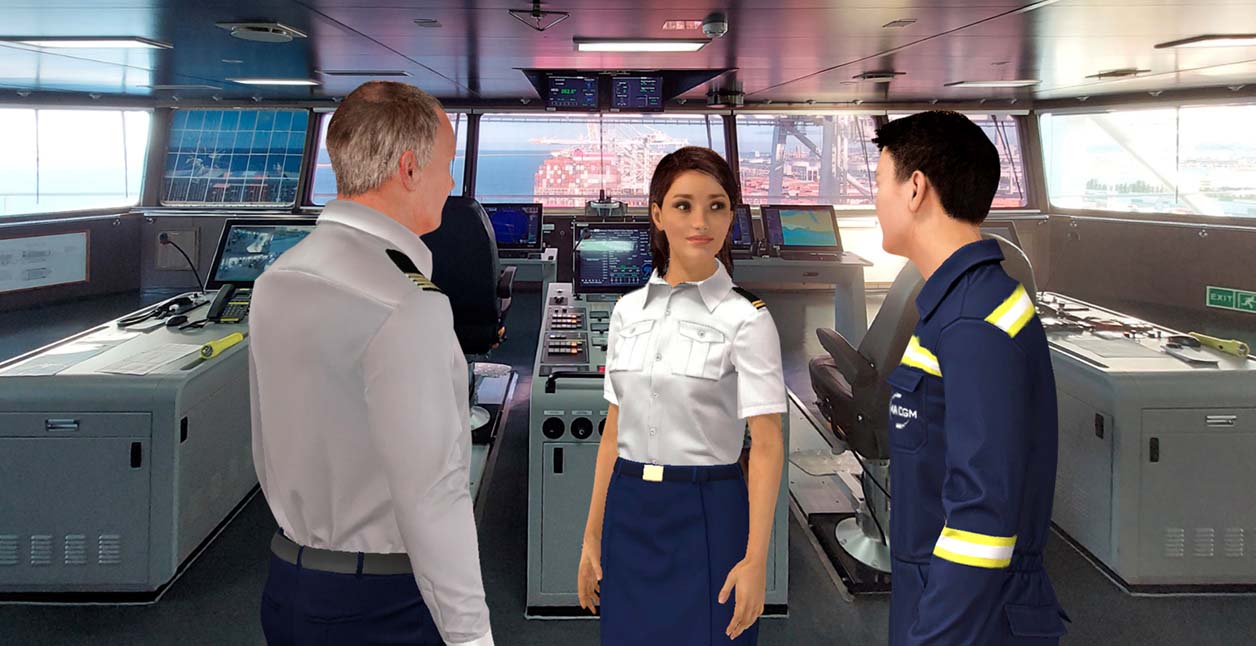
The BEST
of digital training
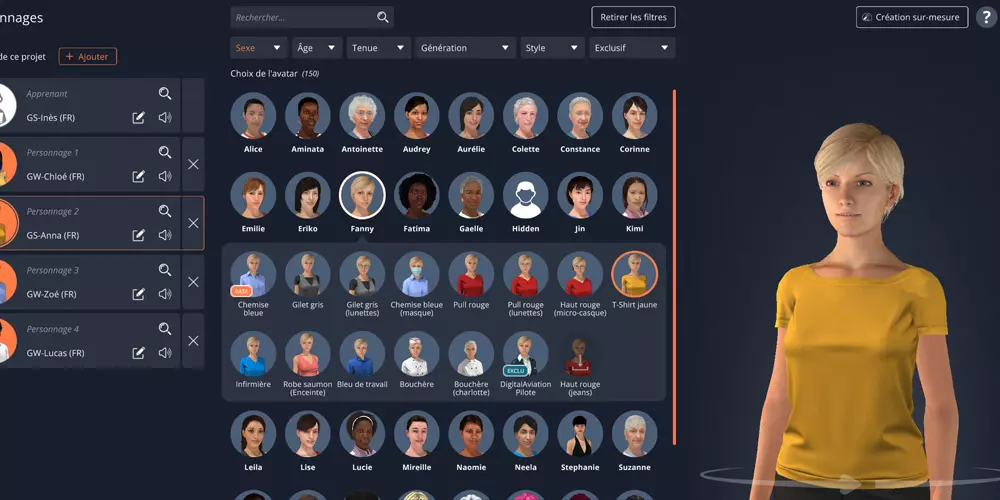

Design E‑Learning modules with VTS Editor
Quickly and easily design captivating Serious Games, e‑learning modules enriched by gamification, and practical situations to boost the ROI of your training.
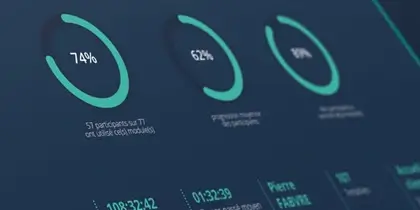

Deploy and analyze on our LMS platform VTS Perform
Explore VTS Perform, our intuitive solution for deploying and tracking your online training. Simple, personalized, ergonomic, offer your learners a pleasant and efficient training platform.
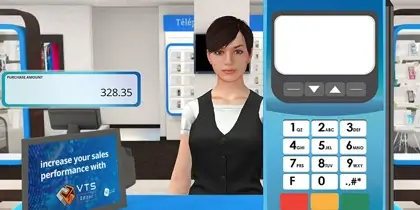

We create your custom E‑Learning courses
With over 15 years of experience, our team of experts is dedicated to supporting companies in the custom design of e‑learning and Serious Games, propelling learner engagement and the effectiveness of your training.

